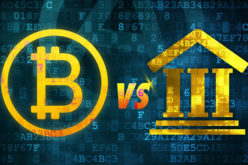The benefits of digital currency

Digital currencies are money used on the internet.
Digital money exists only in the digital form. It doesn’t have any physical equivalent in the real world. Nevertheless, it has all the characteristics of traditional money. Just as classic fiat money, you can obtain, transfer or exchange it for another currency.
You can use it to pay for the goods and services, such as mobile and internet communication, online stores and others. Digital currencies don’t have geographical or political borders; transactions might be sent from any place and received at any point in the world.
Actually, digital accounts and wallets may be regarded as bank deposits. Digital currency and it’s increasingly being accounted for and traded on the internet, where it can be exchanged at ever lower cost. As although nominal transaction processing fees may be incurred; however the net fees are significantly less than the conventional method.
When you look at things such as your credit card, debit card, electronic or phone banking have all digitised money such as the rand, dollar, pound, euro, yen or rupee and so forth. This is because a digital currency doesn’t have to be based on encryption. It should be paperless and enable digital transactions. And it should be widely accepted as a form of payment.
It’s a currency that can be denominated to a sovereign currency and issued by the issuer responsible to redeem digital money for cash. In that case, digital currency represents electronic money (e-money). And being able to access money is a benefit. Because money is a real notion of value and currency itself is a token of value.










